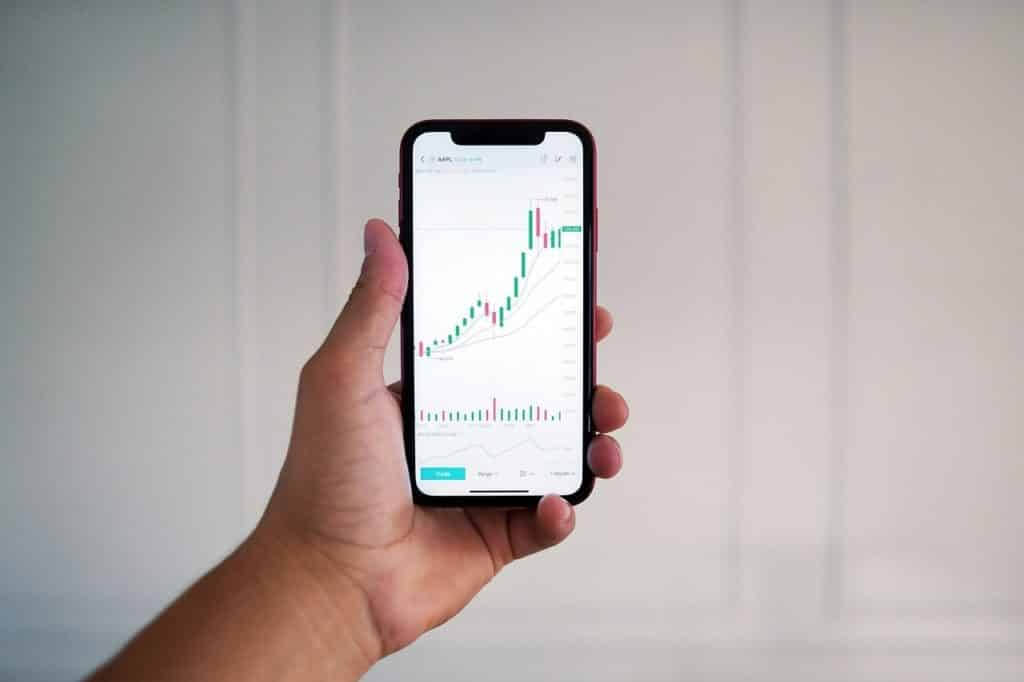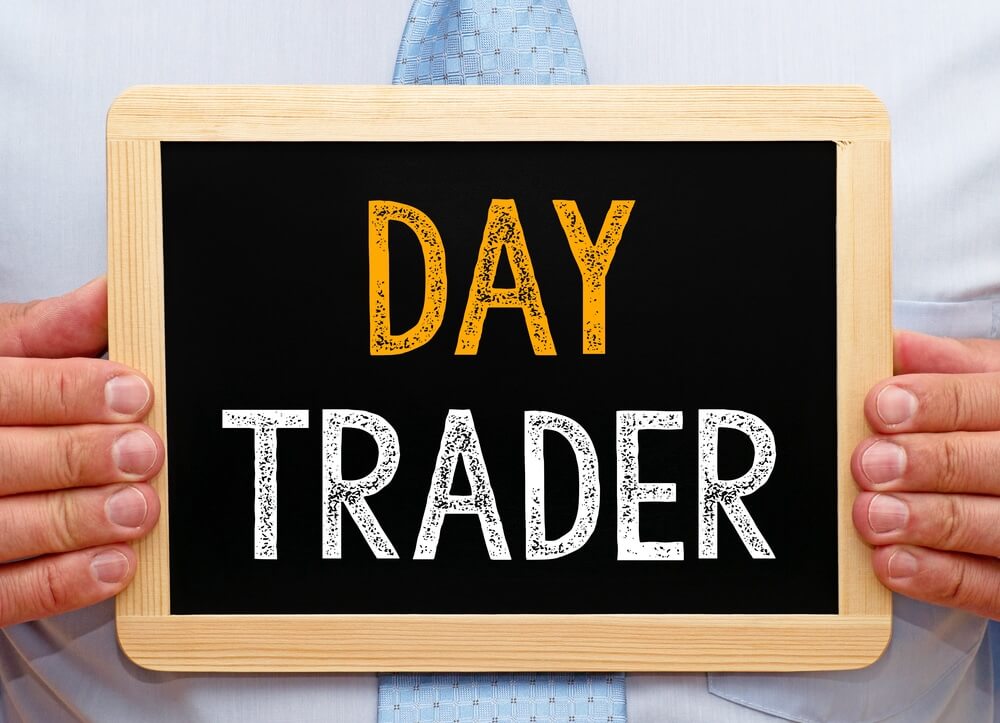Personal Trading: How do I become a trader for myself?

Personal Trading: How do I become a trader for myself?
Have you ever wondered how to start personal trading in the best possible way? What does it take to become an active trader in 2022? Many enthusiasts worldwide have become intensely interested in trading as a business in the past few years.
Personal trading has proven to be one of the most profitable and popular branches of online business that many still dream of. Stories about how specific world traders managed to make huge profits in this business are undoubtedly one of the most fundamental reasons for its popularity.
But what does personal trading mean? Why is this kind of trading so flourishing today? Let’s start with the most basic, shall we?
What is personal trading exactly?
Personal trading, in general, refers to the purchase or sale of Securities by one person for their account or any other account in which they are a Beneficial Owner. The term “personal trade” means buying or selling of Securities by an Access Person for:
- Any account in which they have Beneficial Ownership
- An access person controls any account besides an advisory client of the Firm account.
Remember that an account is strictly controlled by an Access Person, who decides what Securities transactions for the account will be affected. It’s done so either by:
- Making recommendations to the owner of the account
- Entering orders directly with the broker handling the account
Also, it’s crucial to understand that at no time will trade for a company’s advisory client be deemed a Personal Trade.
Trading account – explained.
A trading account is mainly referred to as an investment account containing cash holdings, securities, or other holdings. A trading account is usually considered a day trader’s primary account.
These investors aim to buy and sell assets more frequently, usually within the same trading session. A trading account holds the assets separated from others that could be part of a hold and long-term strategy.
A trading account is known as an investment account. However, for the most part, it is considered an account used to trade securities. Trading accounts need personal identification information and have minimum margin requirements previously set by FINRA.
What can a trading account hold?
A trading account can hold cash, securities, and other investment vehicles. It’s just like any other brokerage account. Trading accounts could also describe tax-deferred retirement accounts and numerous other accounts.
Generally, a trading account differs from other investment accounts by:
- The risk it involves
- The level of activity
- The purpose of that activity.
The activity in a trading account usually constitutes day trading. According to FINRA, the Financial Industry Regulatory Authority, a day trade represents buying and selling securities within 24 hours in a margin account.
Day traders as investors
FINRA also defines pattern day traders as investors who fulfil the following two criteria:
- Traders whose day-trading activity constitutes six or more per cent of their total activity during that week.
- Those who make at least four-day trades either buy and sell a stock or sell a stock short and close that short position within the same day over a five-day week.
Personal securities account
For personal trading, it’s also essential to understand the definition of a personal securities account and a personal securities trading policy. It refers to a brokerage account through which securities under an Access Person Beneficial Ownership are held, bought, or sold.
So, any account in which securities are held for a person’s indirect or direct benefit can be a personal securities account. Regarding brokerage accounts, these accounts are only established with approved brokerage firms.
Of course, unless the Compliance Department grants an exception, that can provide both statements and confirmations electronically. Traders use trading accounts for placing buy or sell orders in the stock market.
Personal securities trading policy – explained.

When it comes to personal securities trading policy, you may not be able to purchase or sell securities previously issued by Prudential or any other public company if you don’t possess material nonpublic information that correlates to those companies.
This restriction applies to transactions for you, family members, Prudential or any other person for whom you may purchase or sell securities.
A brief explanation of personal stock trading
To fully understand personal stock trading, you need to understand that a stock trader refers to a person who tries to profit from buying and selling securities such as stock shares.
Stock traders could be professionals who trade on behalf of a financial institution or an individual who trades on behalf of themselves. These stock traders participate in financial markets in numerous ways.
What are the Personal Trading Policy and personal account trading policy?
A personal trading policy, or a PTP, is designed to ensure that all personal securities transactions don’t violate fiduciary duties and applicable law. On the other hand, the personal account trading policy sets forth minimum global standards to ensure that every personal investment activity is conducted along with applicable regulations and laws.
Besides that, the goal is to ensure that conflicts of interest related to personal investment activities are managed appropriately or successfully avoided.
It’s also essential to remember that the Code of Ethics and the Investment Advisers Act rules mandate that advisers must have a personal trading policy to protect against the possible misuse of material and private information such as the market itself or timing traders to disadvantage clients.
Do online brokers have a personal interest in trading?
It’s crucial to keep in mind that, for example, money in America is strictly regulated and managed by professionals. The critical question in the “fourth stage of capitalism” is to see whether those who manage that money do so in people’s interest or not.
Often, brokerage companies that trade stocks or buy stocks from numerous corporations start investing in some companies and their stocks. Thus, they start to have their interest. So, is that interest a big deal? Do professional brokerage companies’ trading activities, and their managers interest them?
Questionable behavior by mutual fund managers
Here is one explanation. In the last couple of years, mutual fund investing has grown considerably. One recent study showed that 27% of all US households, which is approximately 40 million people, have more than 2 trillion dollars invested in mutual funds. There’s been somewhat questionable behavior by mutual fund managers.
For example, Fidelity’s portfolio manager was convinced to accept one invitation to get valuable warrants from Drexel Burnham Lambert right after causing her fund to purchase Drexel junk bonds.
On the other hand, John Kaweske, who’s known as a high-profile, successful money manager at the Invesco fund group, got fired for failing to report his traders to the mutual fund company. Thus, he’s been charged by the SEC for taking advantage of his professional position to benefit himself.
Personal trading by fund managers is a significant issue.
Another example is John Wallace, who was a top fund manager of Oppenheimer, being fined $20,000 for failing to report not less than thirteen personal trades. In the wake of Kaweske’s firing, it appeared that personal trading by fund managers was widespread.
Some claim that top managers are able to earn as much trading for themselves as the company pays them to manage other people’s money, even though these managers are already well paid. Personal trading by fund managers became, for a while at least, the big problem of society.
Mutual Funds – explained
Mutual funds are known to have different organizational forms than most other corporations. In the terms used in the relevant statutes, investment companies represent companies that invest in securities.
Most usually, fund x refers to a corporation organized by investment adviser firm Y, which manages Fund X for what happens to be a fee that’s a percentage of assets under management. After organizing Fund X, Adviser Y is responsible for entering into a management contract with X by selling X’s shares to the public through brokers or direct.
Mutual fund investors, for that reason, are shareholders of Fund X, which depends on the Adviser Y’s performance for their returns.
Adviser Y will often organize numerous funds and distribute their shares through a wholly-owned distributor. So, we are now talking about the groups of funds referred to as “mutual fund complexes”. In the mutual fund industry, all top-known names are fund complexes such as Oppenheimer, Vanguard, Fidelity investments, etc.
Due to a conflict of interest between Adviser Y and the Fund X shareholders, the ICA, the Investment Company Act, mandates several governance devices. Forty per cent of directors or trustees of a particular investment company have to be disinterested.
Regulations of personal trading by fund managers
Besides general regulations, the Investment Company Act regulates personal trading by fund managers under section 17. This section is known to regulate transactions by the fund and includes two provisions of direct relevance to personal trading.
Section 17 makes it unlawful for any fund manager to accept from any source any compensation for the purchase or sale of any property to or for such registered company while acting as an agent for the fund. In other words, according to this edition, it’s illegal to accept any benefits such as finder’s fees or privileged access to a great investment opportunity of the fund.
From one of the previous examples, a mutual fund manager who bought for her account valuable warrants that Drexel Burnham Lambert made available for buying junk bonds for the fund violated section 17.
For that, one mutual fund manager whose son got commissions from an issuer based on the fund’s purchase of that issuer’s securities would also violate Act 17.
How to become a trader for yourself?
If you got interested in personal trading and becoming a trader yourself, here are some of the essential steps to do so:
- Conduct a Self-Assessment. Becoming a successful day trader requires combining knowledge, skills, traits, and a commitment to a lifestyle.
- Get yourself a personal trading room setup where you’ll work daily.
- Arrange Sufficient Capital.
- Understand the Markets.
- Understand Securities
- Set up a Trading Strategy
- Integrate Strategy and Plan
- Practice Money Management
- Simulate and Backtest.
- Start small and expand.
The post Personal Trading: How do I become a trader for myself? appeared first on FinanceBrokerage.




0 Response to "Personal Trading: How do I become a trader for myself?"
Post a Comment